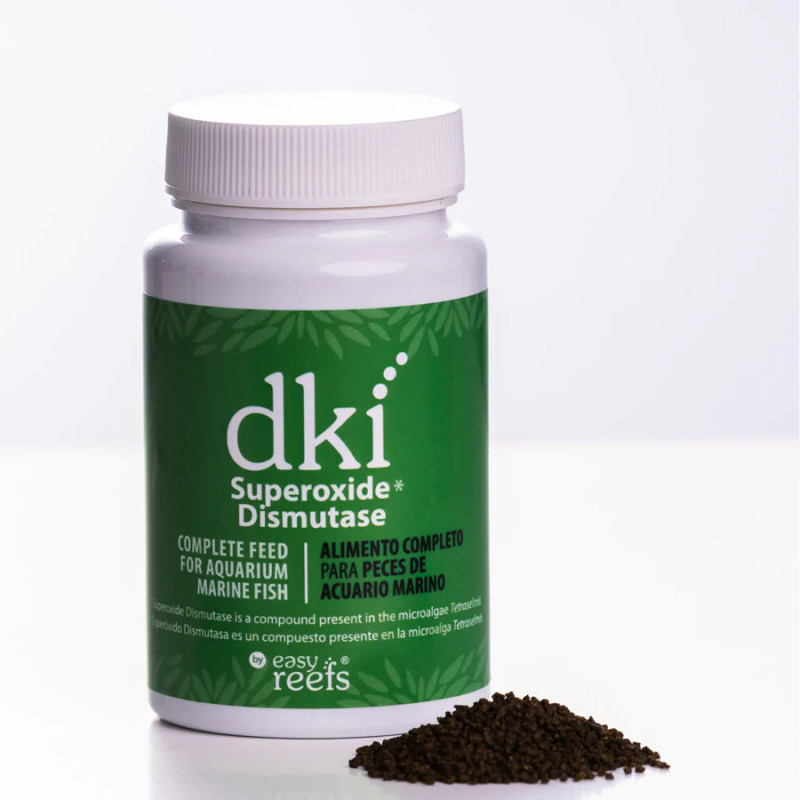More info
Masstick’s legacy.
DKI marine is a balanced food, which has been developed to satisfy the nutritional needs of omnivorous marine fish from the coral reef biotope.
DKI marine comes in the form of tender granules and neutral buoyancy. It is available in grain sizes of Ø 0.8 mm, Ø 1.2 mm and Ø 2 mm.
DKI marine'smain ingredient is freeze-dried shrimp (Palaemonetes varians) coming from our Veta de la Palma fisheries located in the Doñana Natural Space.
The microalgae (Nannochloropsis, Tetraselmis, Isochrysis, and Phaeodactylum) included in its formula provide fatty acids, completely natural vitamins, functional compounds and bioactive ingredients which preserve and boost the marine fishes’ immune system and general health.
Thanks to its essential amino-acid contents, its fatty acid contents, and its fully bio-available micronutrients, which are all involved in the fishes’ metabolic pathways, the product’s morphological and organoleptic characteristics, together with its highly valuable biological proteins, means that the DKI marine granules are a food system based on a holistic concept of nutrition for coral reef marine fish.
DKI Superoxide dismutase
Oxidative stress occurs when antioxidant capacities are overwhelmed by the load of reactive oxygen species (ROS), which are produced by the metabolism itself but can also be induced by exogenous factors such as an inadequate diet low in antioxidants. The green microalgae Tetraselmis chuii has been widely used as food for the development of crustacean and fish larvae, and has a balanced nutritional composition containing vitamins, minerals, amino acids, essential fatty acids, polyphenols and pigments. Furthermore, when grown under industrial conditions under patent-protected systems, this species of microalgae is capable of accumulating the highest superoxide dismutase (SOD) activity found on the market, with more than 30,000 U/g dry weight.
SOD is the most powerful antioxidant against ROS, scavenging superoxide anions and thus protecting cellular components from oxidative damage. In addition to this role as a direct antioxidant, T. chuii has been shown to act as an indirect antioxidant in both in vitro and in vivo systems, inducing its own cellular antioxidant mechanisms, SOD, glutathione peroxidase and catalase, both at the transcriptional level and in enzymatic activities.
These effects appear to be mediated by activation of the nuclear transcription factor Nrf2, which is known to control the expression of hundreds of genes that play a role in multiple cytoprotective pathways.
Reviews
No customer reviews for the moment.
